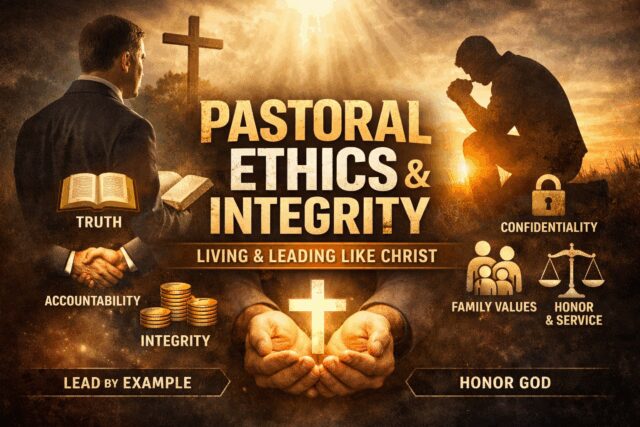Pastors and church leaders hold a position of great responsibility, serving as spiritual guides and moral examples to their congregations. Upholding strong pastoral ethics and integrity is essential for maintaining trust, leading effectively, and fulfilling God’s calling. A commitment to pastoral ethics ensures that church leaders reflect Christ’s character in every aspect of their ministry.
The Importance of Pastoral Ethics and Integrity
Pastoral ethics and integrity are foundational to a thriving ministry. Church leaders are entrusted with guiding others in faith, providing counsel, and representing biblical values in both their personal and professional lives. Ethical lapses can lead to broken trust, damaged relationships, and harm to the church community. Therefore, pastors must remain steadfast in their commitment to godly character, transparency, and accountability.
1. Commitment to Biblical Truth
A pastor’s first ethical responsibility is to uphold the truth of God’s Word. This includes preaching sound doctrine, avoiding false teachings, and ensuring that biblical principles guide all decisions and actions. A commitment to truth safeguards the integrity of the church and strengthens the faith of its members.
2. Personal Integrity in Speech and Conduct
Church leaders must model honesty and integrity in their words and actions. Whether in private conversations, public teachings, or social interactions, a pastor’s conduct should reflect authenticity, humility, and truthfulness. Integrity builds trust and credibility within the congregation.
RELATED: Billy Graham’s Example
3. Transparency in Financial Stewardship
Handling church finances with honesty and accountability is a crucial ethical responsibility. Pastors must ensure that tithes, offerings, and donations are managed wisely, with clear financial records and ethical decision-making. Transparency prevents financial scandals and reinforces trust in leadership.
4. Respect for Confidentiality
Pastors often counsel individuals facing personal and spiritual struggles. Maintaining confidentiality is essential for creating a safe space where people can seek guidance without fear of exposure. While legal and ethical exceptions may apply, discretion should always be a priority.
5. Faithfulness in Marriage and Family Life
A pastor’s personal life directly impacts their ministry. Ethical leadership includes honoring marital commitments, prioritizing family relationships, and setting a godly example for the congregation. Strong family values reinforce credibility and demonstrate the importance of biblical principles in everyday life.
6. Accountability to Church Leadership and Peers
No pastor should operate in isolation. Seeking counsel from elders, mentors, and accountability partners helps church leaders stay on the right path. Accountability ensures that pastors remain humble, open to correction, and committed to continuous spiritual growth.


